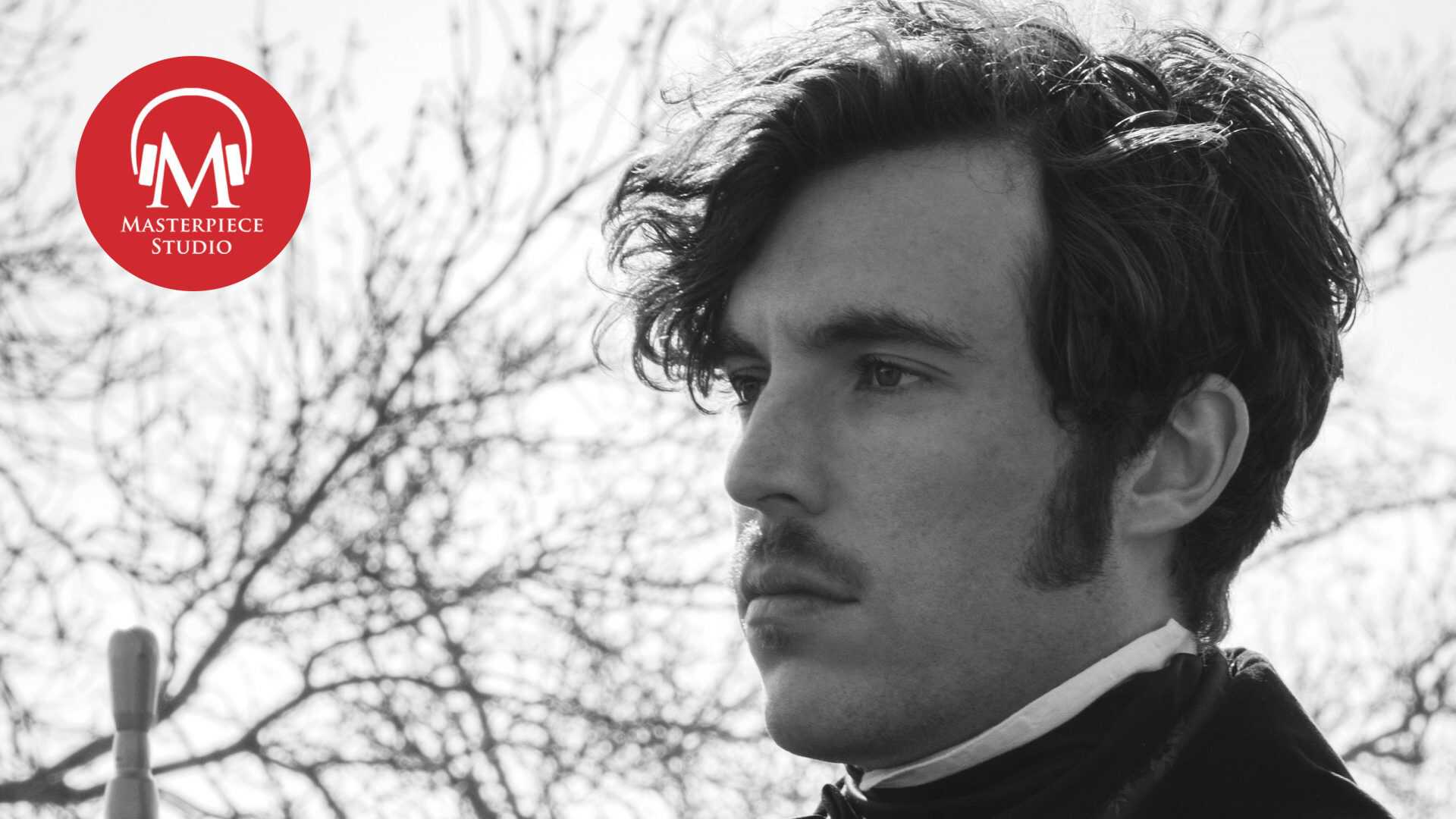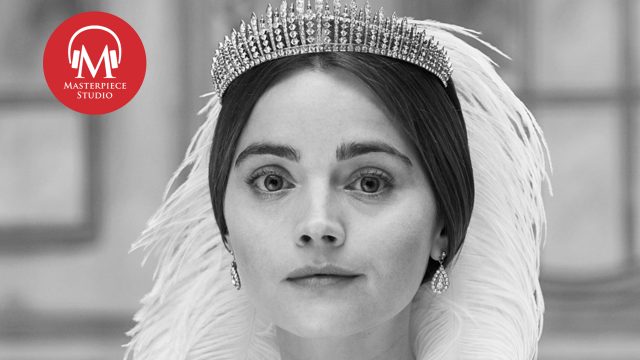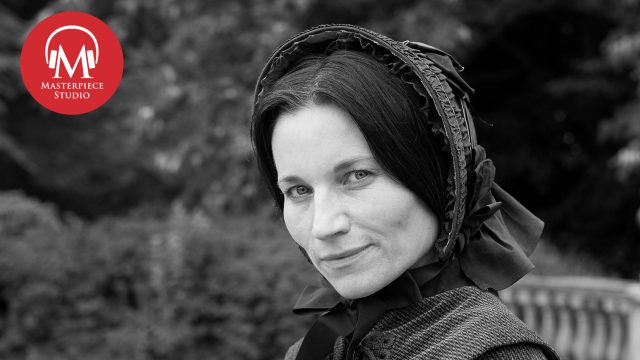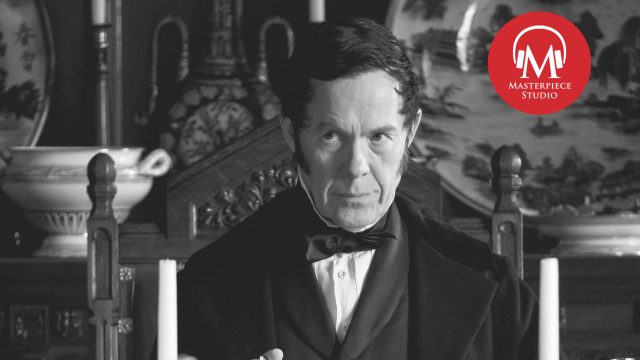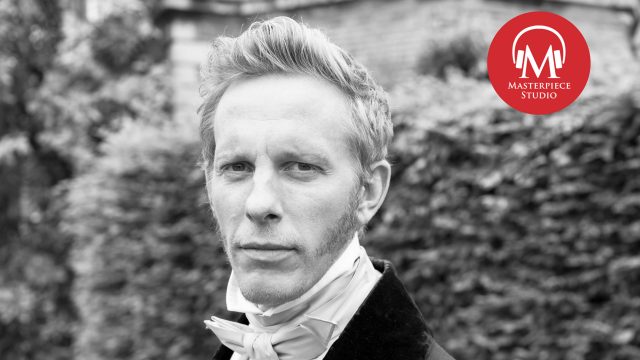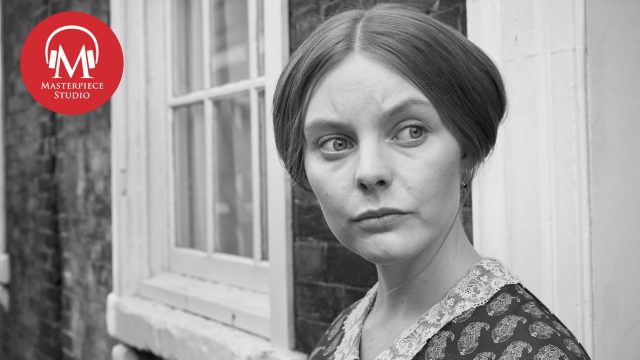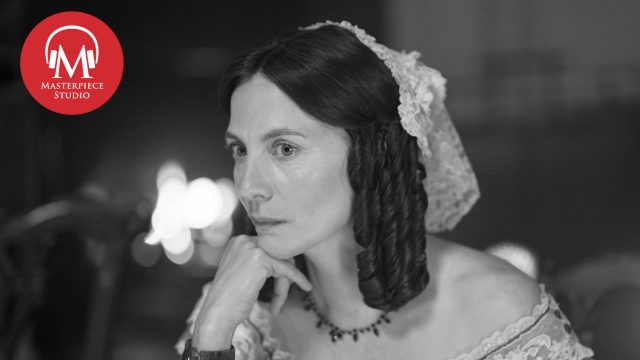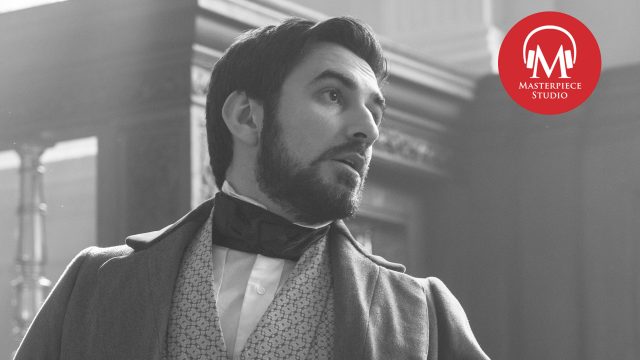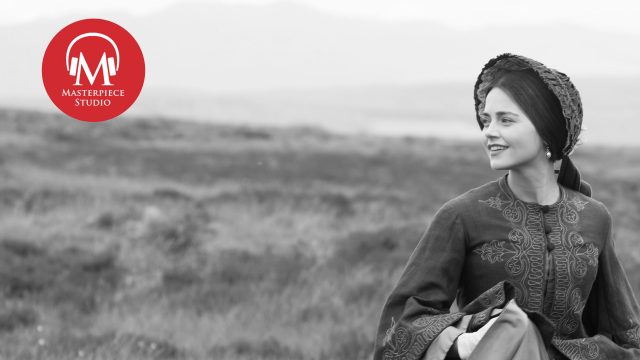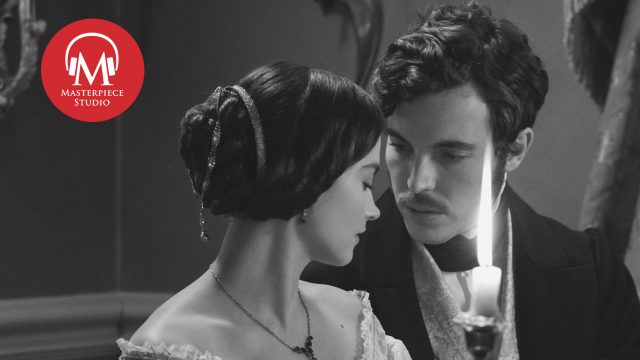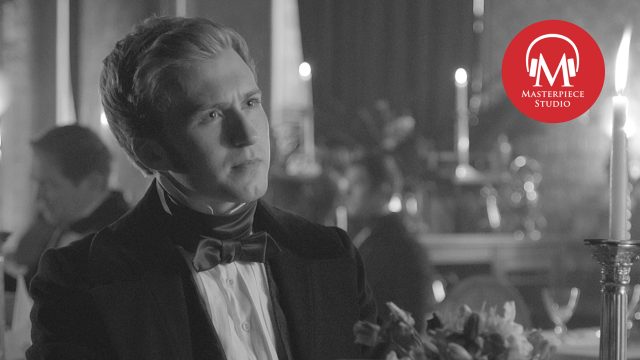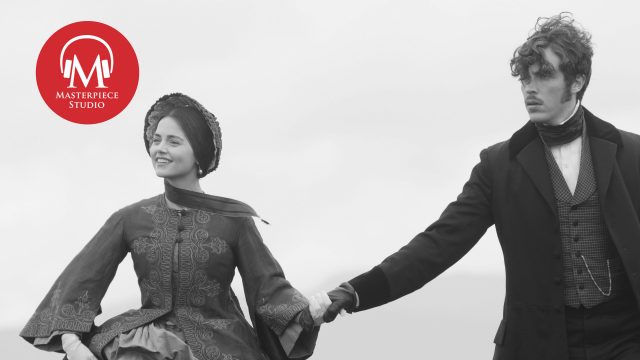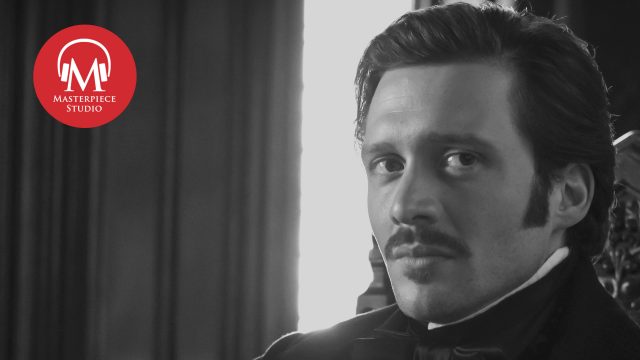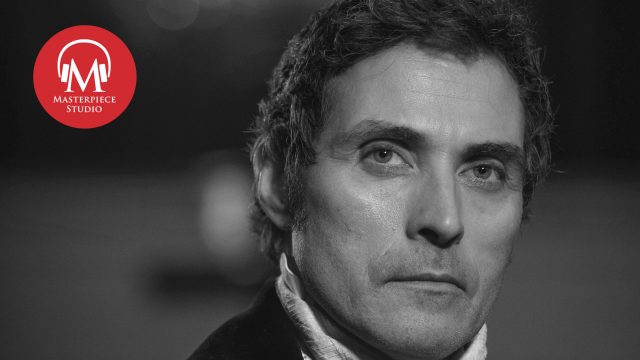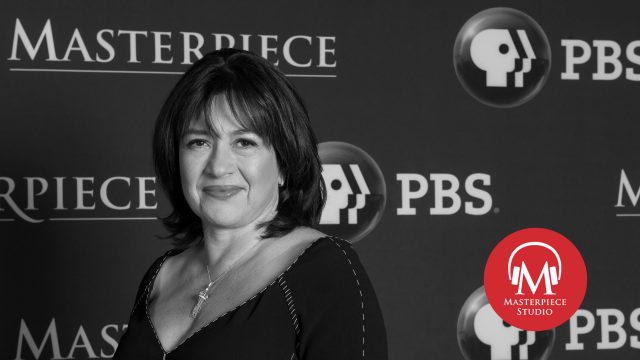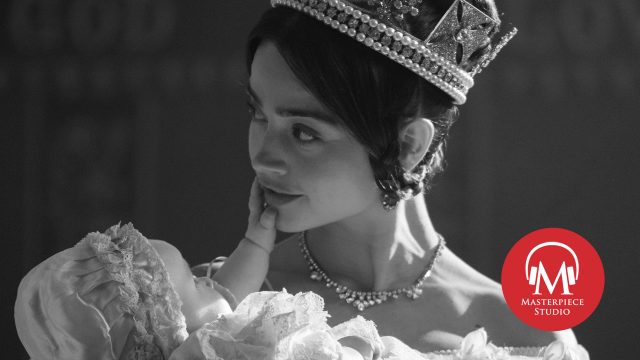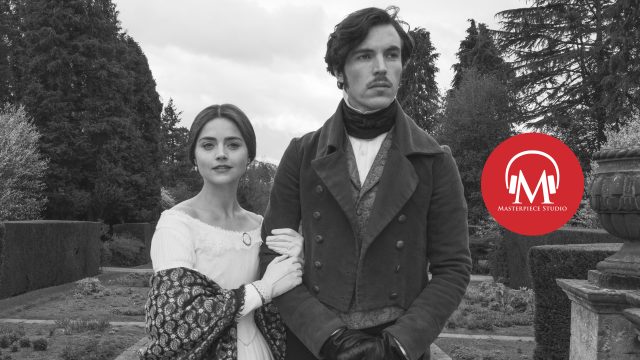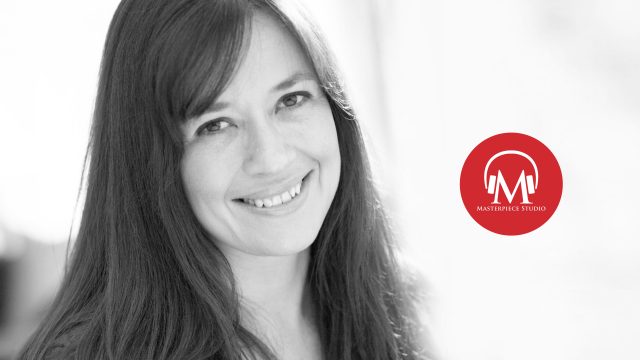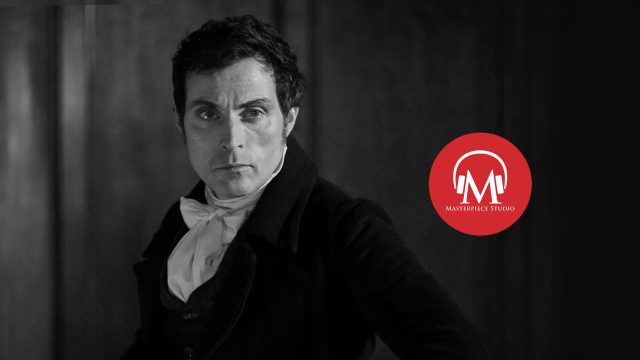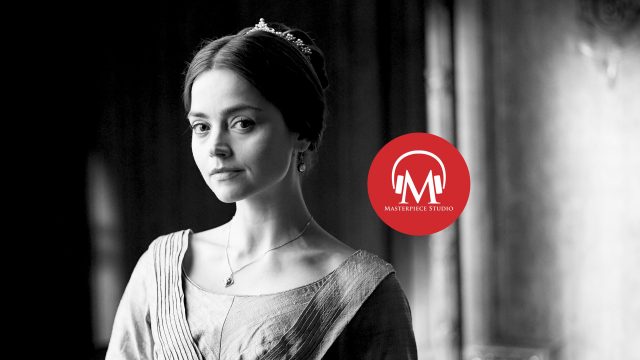Jace Lacob: I’m Jace Lacob, and you’re listening to MASTERPIECE Studio.
After a heady few months of taking charge of the United Kingdom, Prince Albert is firmly back under Queen Victoria’s rule. But the fiercely independent German Prince-Consort is chaffing under the narrow limits his wife, the Queen, has placed on him.
SCENE
Albert: The way that this palace is run, it’s chaos. There are cobwebs in every corner, the drains are like an organ stable and it’s porous.
Victoria: Well If it bothers it so much, then stop complaining and do something about it.
Albert: You are giving me permission to reform the way the palace is run?
Victoria: Well if it will stop you ruining my breakfast, then yes.
Jace: An official state visit to France offers Albert the chance to reassert his authority in his marriage, given his greater familiarity with the courts of Europe. But Victoria’s adoption of certain decadent French behaviors shocks the more naturalistic Albert.
SCENE
Albert: Tonight — when you came in, I saw that you had painted your face, why would you feel the need to do that?
Victoria: The French ladies looked so smart. I wanted to look more like them and less like the Duchess of Buccleuch.
Albert: Please never do it again. I do not know if I can bear it.
Jace: Actor Tom Hughes shares the VICTORIA spotlight with his co-star, Jenna Coleman. And the evolving picture of the royal couple’s marriage — and Albert’s understanding of his own family — gives him a wide range of material to work with this season.
SCENE
Tom Hughes: I think Albert has a quiet resolve about him and I think when you have a man that is distant in social situations, if he’s going through something — it’s difficult to indicate to the people around him and more importantly for the audience to necessarily see that shift.
Jace: We spoke with Hughes about French swimming scenes, Lady Ada Lovelace, and questions of identity, loyalty, and family in this season of Victoria.
And show creator Daisy Goodwin will chime in with another historical fact or fiction segment, too.
Jace: This week we are joined again by Victoria star Tom Hughes. Welcome.
Tom: Thank you very much how are ya?
Jace: Looking at your resumé, between things like Silk, Dancing On the Edge, In the Game, etc, it seems like Prince Albert is the first time you’ve revisited a character that you’ve played. What was it like having the opportunity to return to a character you’d previously played?
Tom: Well I mean it is the first time that I’ve revisited a character — kind of out of choice, really, to a certain degree. It was it was kind of the perfect first return for me. You know obviously, Albert is a a real man. He lived, and so the arc of the story is now a necessity as guarded by history and there’s a definite responsibility with any real person one represents to try and be as accurate as you can and also in our storytelling there’s a responsibility, I think broadly speaking, to be accurate to the path of history. So I was able to kind of look at it look at that and build those put in place those building blocks, early doors, knowing fully where the arc could take me.
Jace: When we pick up with Albert at the beginning of this season, he and Victoria have just had their first child the Princess Royal.
Tom: Yeah.
Jace: And the queen has been sequestered, leaving Albert in charge of the royal boxes. Why is he initially so unwilling to relinquish control once she returns to her duties?
Tom: I don’t think he is, if I’m honest….at least I wasn’t thinking that when I was playing it. It’s not a sense of not wishing to relinquish control. I’m not really sure it’s control in my interpretation of Albert, particularly at this stage of my character’s life, it’s not control that’s driving him, it’s a need for freedom of expression. He is a foreign man and has in his land, he’s an alien. I think more it’s in her absence he’s realized his desire for something that would ground him and give him a platform to build from, and in Victoria’s absence he’s been given that out of necessity, really, someone had to fill the void. And not only has he enjoyed finally finding those roots, he’s taken to it well, and excelled with it. So I think when Victoria comes back, it’s not the control of the boxes per se or the control of or wishing for that seat in that particular chair or position, I think it’s more the awareness that he goes back to the status quo that existed before the birth of the child. And that means that those foundations, that platform, those roots aren’t in place again. And I think that’s the thing that is the hurdle for him, far more than passing back something that never truly belonged to him.
Jace: Cobourg rather unexpectedly dies in the arms of a prostitute doing as Ernest contends, what he loved best coming on the heels of the birth of his own child, how does the death of his father effect Albert.
Tom: Well I mean, how does the death of any person affect any human? I think it has a strong impact. Regardless of one’s relationship with one’s parent, be that good, bad, close, distant. I think there’s a seismic shift. And I think for Albert, he feels a degree of guilt, which I think is in many ways is perhaps a very honest feeling to feel. Guilt for being distant, guilt for perhaps not having said the right thing the last time you saw that person. And a guilt for never truly being close. And I think that it’s only when Leopold suggests to Albert what he suggests that although that sends Albert spinning, I think Leopold actually probably speaks something, puts a name on something, pinpoints something that kind of gives ownership to a feeling that maybe Albert always had. He’s never quite felt that love or connection with his father. And so I think the death of his father, for those two different reasons — one of the initial impact of the loss of the man he believes to be his father and secondly, the potential of the discovery that someone else could equally have been his father — I think it has a very very dramatic impact on Albert’s thoughts about the world, relationships with men, with women, with anyone, really. And I’m not sure Albert will be the same man prior to that moment as he is after that moment.
Jace: I mean if Albert’s greatest claim to fame is his genetics then what is his value if he’s not actually the son of Cobourg?
Tom: Well precisely. I think you know that that angle that you just expressed looks at it from you know from a work point of view of you like, you know, that would make him illegitimate. That would make him not able to be the husband of the Queen of England, that you know there are many implications from that angle, but I think also, you know, it’s very interesting to look at, the and far more interesting I think for me, to look at the implications really on a human level, you know, on an animal level. This is regardless of where you find yourself, what job, what place in life, what country, what whatever. I think that that discovery at that time — the loss of a father and then immediately realising that that may not have been your father that you lost but then the instability of not knowing that with any certainty. And I think for a man with the traits that Albert has,it’s just a horrendous episode a horrendous period in his life.
Jace: Though the weapons may be only verbal, one of my favorite scenes this season is Albert’s big fight with Leopold, complete with armor. What was it like filming this confrontation with Alex Jennings?
SCENE
Leopold: Albert, what on earth is the matter, what are you doing with this armor?
Albert: It’s for my protection.
Leopold: Albert, you are upset, I understand that, but behaving like Ernest is not going to help.
Albert: At least Ernest knows who his father is.
Tom: Well I don’t really remember, if I’m truly honest, because you kinda get yourself into a bit of a a bit of a zone you know. And I’ve drank a lot of cola just to get me kind of pumped. Those scenes are between two people and therefore they’re between two actors. And if you have a degree of emotional strain and turmoil to reach, if you want to remotely stay in a push for that you need the support off the screen and also most importantly, on screen from the person you work with. I’m very lucky that Alex Jennings is the person playing the part of Leopold. I’ve worked with Alex a couple of times, before but relatively briefly compared to this storyline, and he’s just fantastic to work with in every capacity. And so I don’t think I’d be able to be sat here not really remembering how it went, if I didn’t have the support of an actor like him with it so as an experience it was great.
Jace: How heartbreaking is this revelation for Albert considering his closeness with Leopold. Does he in some way lose both father and father figure in one fell swoop?
Tom: No. I mean that’s a headline isn’t it? And I guess it ends in certain ways the headline is potentially true. I don’t know if he’s aware that Leopold is a father figure, or if even Leopold is a father figure. I’m not sure if it’s as simple as that. I think it’s it’s bigger. Albert’s foundations have been swept away and he’s flailing, and he’s and he’s trying to stay afloat in the air…he can’t breathe. He doesn’t seem to be the most irrational of men, he doesn’t seem to be the most recklessly impulsive. And suddenly, that white noise, that that heavy metal, that scream, the wind, the thunder it’s all rattling around him — I think it’s more seismic than that somehow, it’s about the foundation of everything and the impact on that for everyone around him that relies on him. And how does he continue to be those things that he’s expected to be when his own identity is shifted to such a degree, and it’s like being trapped in the funfair in that in the mirrors. Every door everywhere you look there’s a warped perception of the man you know, but you can’t quite reach him, and I think that’s the potential for a real lasting damage if he doesn’t find a way to get out of there, and I think that that’s the issue, and that’s all encompassing.
Jace: Before this next question, a brief word from our sponsors…
Masterpiece Studio is brought to you by Viking. Explore the world in comfort, by river and sea. Learn more at vikingcruises.com.
Jace: He’s so put off by the artifice of the French court so much so that when he sees the waterfall in the woods he says, ‘Ah at last, something real,’ as though this has been sort of a search for that very realness, that authenticity, that physical realness. This ends up being a sort of scene where he strips down both physically and emotionally — and you end up in some very cold water. What was it like performing this scene and what did it represent for you?
SCENE
Duke of Montpensier: But what are you doing?
Albert: I’m going to swim.
Duke of Montpensier: But it will be cold and wet. Eh? It’s not civilized.
Albert: Precisely.
Tom: Well it was cold…I’ve actually been that waterfall before — an old friend of mine lives not far from there, and so many many moons ago we’d been up there and jumped in from the from the very position that Albert jumps in so that was funny. Myself and Michael Hales, the production designer we’ve talked a lot about imagery of nature and out and about bringing the nature indoors in Albert’s quarters, and I was striving for that. We use a lot of imagery of a single man looking out across the expanse of nature. And there’s something about that in Albert, there’s something about the individual pursuit, and in some respects he’s up he’s a bit of an island. So I think all those things considered, that moment is a potential just to completely lose oneself in the purity of nature, completely lose oneself in that passion of yours that you’ve owned and harnessed and cherished and is part of you, and has been part of you, and you’ve grown from all your life. To kind of refine yourself, to to cleanse yourself. I think he’s just very much lost, and the one thing that’s ever present, throughout the whole of humanity and the one thing that means very much to him as a guy is nature. And to lose himself in that, to purify himself, to try and cleanse and refine himself. I think it’s a very important moment for him. And actually I think that’s what allows the following scenes to take place.
Jace: There is a beautiful post-coital scene in bed where Albert confides that he is in an imposter to Victoria. It’s such a beautiful simple scene in which they pledge their devotion to each other but it is ultimately about the truth. And Albert is sort of always talking about the importance of truth but that reconnection with nature that stripping down of artifice of everything I think allows him to finally get to that moment where he can finally tell Victoria who he is.
SCENE:
Victoria: Albert, listen to me. Yes of course, Leopold wants to believe he’s your father, any man would. But he can’t know for certain.
Albert: But I am an imposter. Our children, our marriage, all it built on deceit. I would be a bastard, Victoria.
Tom: He’s found enough of himself again to allow himself to be vulnerable, and realize that, you know, he the one that has to continue on the path he was on, which he believes in truth. There’s no reason for him to not continue to believe in truth. But he’s got to be the one brave enough to live by those rules because those foundations now only, the support network, the whole support network that allows him to be who he is can only come from him now, you know. And it’s important, it’s very easy to forget that he’s…well I think he’s 22, 23 at that point. He’s a young man, and it takes a degree of maturity to truly stand on your own two feet. And I think he’s needed this time, working things out, and finally shedding that skin in that lake to allow himself to be vulnerable emotionally, but also, you know, risk everything that he has. Because this, as you said before, this information could have catastrophic implications in terms of his his day job. So yeah, I think it’s you know, I think there’s a bravery in being honest, that we should all be honest. And I think he needed to find the strength to be bravely vulnerable.
Jace: Tom Hughes, thank you so much.
Tom: No problem.
Jace: Daisy Goodwin joins us now for a quick journey down the historical rabbit hole in this second season of VICTORIA…We are joined again this week by Victoria head writer creator and executive producer Daisy Goodwin. Welcome.
Daisy: Hi Jace.
Jace: Can you explain why marriage between Spain and France would be detrimental to the English at this point in time?
Daisy: Good question. You know, until I started doing my research on this, I had no idea either, but the point was that France was Britain’s historic enemy. If France and Spain were united by marriage, then there was the possibility that they would basically unite Europe against Britain. The thing that Britain wanted to do was always to divide and rule. So they wanted to keep all the countries on the continent at each other’s throats rather than being united by marriage. So, Victoria is in a position where you know she thinks that she is able to, you know, speak to the King of France, Louis Phillipe, as one monarch to another, and say really, you know, don’t press ahead with this marriage for your son to a Spanish princess, because it will really make an enemy of England.
Jace: And is it true that Victoria was the first British monarch to visit France since Henry the Eighth?
Daisy: Absolutely yes she was the first British monarch to go to France since Henry VIII went to the Field of the Cloth of Gold for a jousting tournament against Francis I in I think it was 1538…So a very long time. In fact, you know, it’s extraordinary. It says something about how divided Britain and France were for all those years that no British King had set foot on French soil until Victoria did in 1843.
Jace: There is a lot of discussion of how dowdy Victoria looks in comparison to their stylishness of women at the French court including mocking her clutch with its picture of Dash. What did Victoria make of a French fashion?
Daisy: I think Victoria was very interested in fashion. She had a very sort of theatrical sense of style, but she knew her own brand, so she didn’t try to be something that she wasn’t. So she was dressed in clothes that she thought were appropriate, but I think she admired the French ladies. And when she went there, she, you know, there was a sort of level of sophistication. I mean you know, in court aristocratic French ladies wore makeup, which was unheard of in England. They wore makeup, they wore special flowers in their hair, they had very low cut gowns, and I guess that Victoria for the first time in her life felt slightly sort of outclassed. And I think she I think she may have wanted to emulate them, but I didn’t mean that she threw away her Dash clutch, because you know, I think the thing with Victoria is that, you know, she never doubted her own decisions.
Jace: And why do you think Albert was so bothered by Victoria painting herself here?
Daisy: So I suppose the thing about Albert in this episode — and I don’t want to be too, to be too pretentious — but I sort of see him in a way having a bit of a Hamlet moment. You know he’s just discovered that his father is not who he thought he was. You know he thought he was the Duke of Cobourg’s son and now he discovers he’s probably the son of Leopold, the man who he always thought was his uncle. And so that throws in doubt, you know, his picture of his mother. And then he goes to the French court, where everybody’s very licentious. And you know the French king, Louis Philippe, tells him that he shared a mistress with his son and that, you know, obviously the morals that the French are very unlike the morals of the English court. And he’s really thrown by this. And then he sees Victoria, who he relies on totally for emotional support, sort of joining in with the French, and you know painting her face, and being all flirtatious with Louis Philippe, and he’s really threatened by that. And he thinks, is she going to become a sort of a loose woman, like my mother? I suppose, you know paint her face an inch thick. Will she succumb? So I think there’s a bit of a sort of Hamlet moment, a terror on his part that Victoria, like all the other women in his life, will let him down. So I think that’s where his deep angst comes there. And Victoria can’t understand it, obviously because at that point she doesn’t know the secret that Leopold has revealed to Albert.
Jace: Now, fact or fiction: Albert and that the men disrobed and went for a swim in the forests around the Chateau d’Eu.
Daisy: Well that, I’m afraid is fiction. However, I do know that Albert was very keen on swimming. In those days, men used to go swimming naked, because they didn’t have swimming costumes. You know, if there was a convenient stretch of water. that’s what they would do. And Albert was always going swimming in the Thames and whenever he could. So he may indeed have gone swimming on the visit to the Chateau D’Eu. But there’s no record of it. On the other hand, I thought it was such a sort of German kind of clean-limbed thing to do in contrast to all the kind of artifice and the incredible sugar and spice of the French court, the idea that you might just strip off all your clothes and jump into the freezing cold water, I thought was very much an illustration of Albert’s kind of frame of mind, and how he wants to get away from all the sort of cloying artificiality of the French.
Jace: And he says something like that, ‘Finally something real.’
Daisy:. Well I think that’s absolutely what he thinks you know he’s surrounded by these women who are painted, you know, at the dinner, they eat ortolan which are these tiny some songbirds which are drowned in Armagnac to give them this incredible taste. And it’s a very famous French dish. It was the last thing that President Mitterrand ate, he made it his last supper when he knew he was dying. And you put the napkin over your face so that you can enjoy, you know, the pleasure of sucking all the flesh off these tiny bones without people seeing you enjoy it in public. It’s a very extraordinary French thing, and I think Albert is disgusted by all this kind of sensuality in France. I think he finds it very suspect and he’s scared that, you know, Victoria will be turned. And so you know at this flèche en pêtre, and then he sees his brother going off with one of the French ladies, he sees everybody having a wonderful time apart from him, and then he you know strides out into the forest, and we know that Albert loves the forest, you know, that’s he’s got this very German love of the Wald. You know, he loves and loves to be among trees and it’s this is an extraordinary sort of German preoccupation that and he strides through the trees and there’s this stream and he thinks yes, at last, I can get back to nature as opposed to all the kind of painted artifice of Louis Philippe and his court.
Jace: Were you inspired at all by the bathing sequence in Merchant Ivory’s A Room With A View there?
Daisy: Oooh, Jace you know me too well! Yes, there might have been a touch of that. Yes, unfortunately we had to film our sequence in driving rain in a pool in the Yorkshire dell so it wasn’t exactly the sylvan, sun-dappled scene that I quite imagined. I mean they were incredibly brave, all of them, to get into the water at all. There were only allowed in for two minutes because otherwise they thought they would get hypothermia. So it wasn’t quite what I had in mind, but I think you get the idea that they’re having a moment of sort of getting away from all this kind of overpainted, overthought French lifestyle.
Jace: Fact or fiction: Albert likened the Queen of Spain to a bunch of grapes being guarded by a vicious dog.
Daisy: Well no, I think I’m afraid that is fiction again, but I think it’s the sort of thing he might well have said. I think he was trying to broach an agreement between him, Victoria and Louis Philippe. But I mean I thought, I thought it was a good way of showing that whatever they do is zero sum game, you know, and that it was better Louis Philippe to keep England onside than to take the tempting prize of the Queen of Spain. And of course, Louis Philippe, you know being a perfidious Frenchman appears to agree with them and then of course at the episode he does precisely the opposite.
Jace: Prince Albert isn’t the only dashing German princeling sweeping the ladies of Victorian England off their feet. Albert’s brother, Ernest, is a more worldly and charming counterpart to his stern younger sibling.
SCENE
David Oakes: He’s fun. I mean that’s the thing with him. Everybody likes him. He’s really charming. He gets to do all the sword fighting and the horse riding and kisses all the prettiest girls. I mean who else is there to be in this show really if you don’t get to do that? I mean, he’s fun.
Jace: Actor David Oakes joins us next week on the MASTERPIECE Studio podcast with stories of half-German accents and a thwarted royal romance.
While you wait for Ernest, be sure to subscribe to MASTERPIECE Studio and leave a review of the podcast on Apple Podcasts, Stitcher, or wherever else you find podcasts. Reviews help us know what works for you in the show, and provide a better chance for other MASTERPIECE fans to discover the podcast for themselves.
The VICTORIA Sweepstakes is happening now through March 15, 2018! Enter daily at pbs.org/sweepstakes for a chance to win the Grand Prize, a Viking Ocean cruise for two adults in the British Isles. You may also win monthly prizes of VICTORIA merchandise. For Official Rules, including eligibility restrictions and prize limitations, visit pbs.org/sweepstakes. Void where prohibited.
MASTERPIECE Studio is hosted by me, Jace Lacob and produced by Nick Andersen. Elisheba Ittoop is our editor. Susanne Simpson is our executive producer. The executive producer of MASTERPIECE is Rebecca Eaton.
Sponsors for MASTERPIECE on PBS are Viking and The MASTERPIECE Trust.








